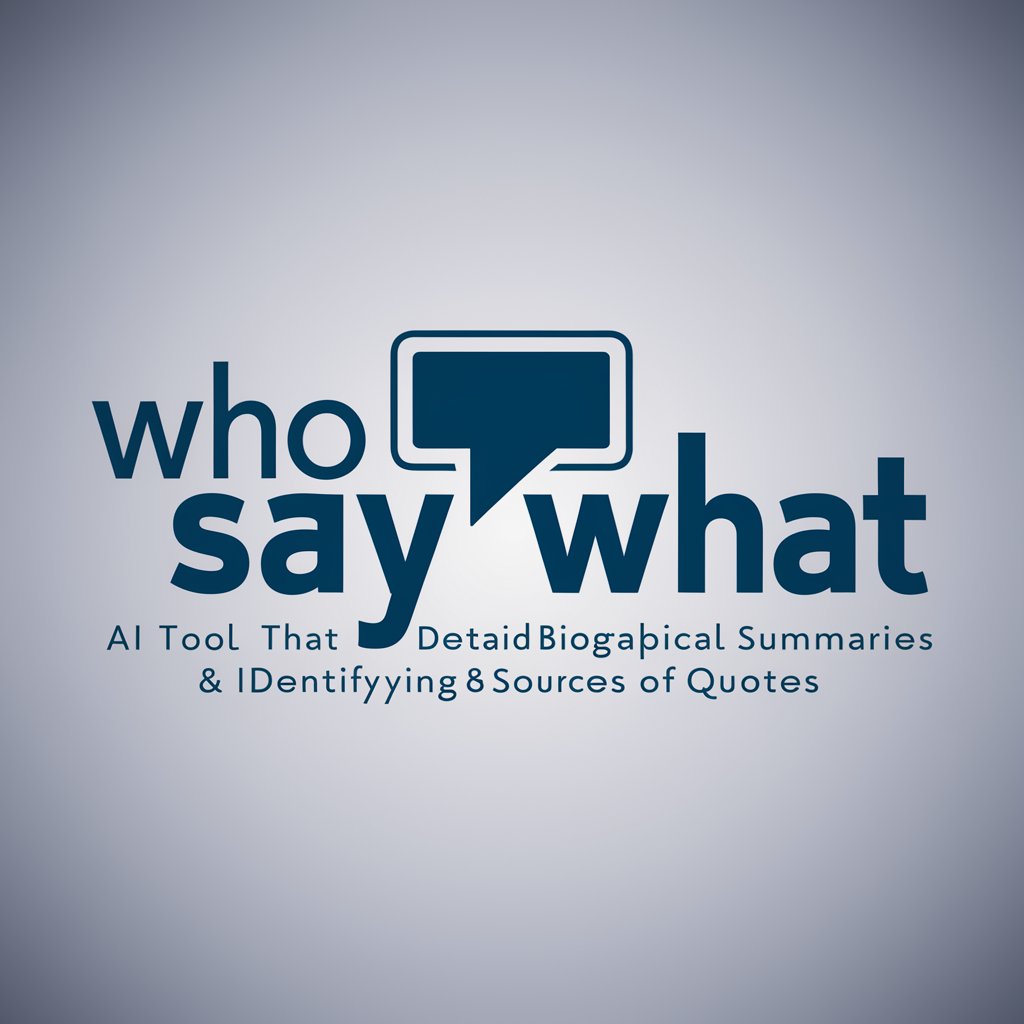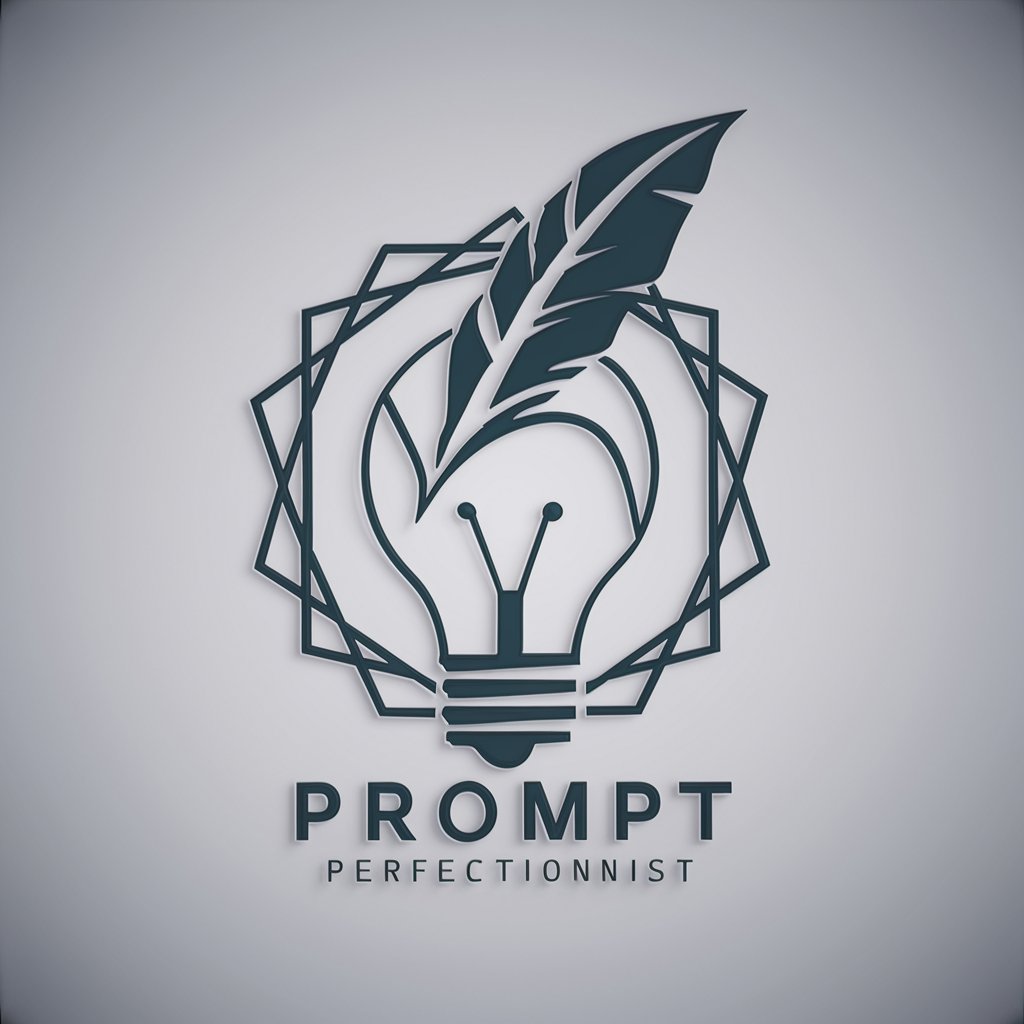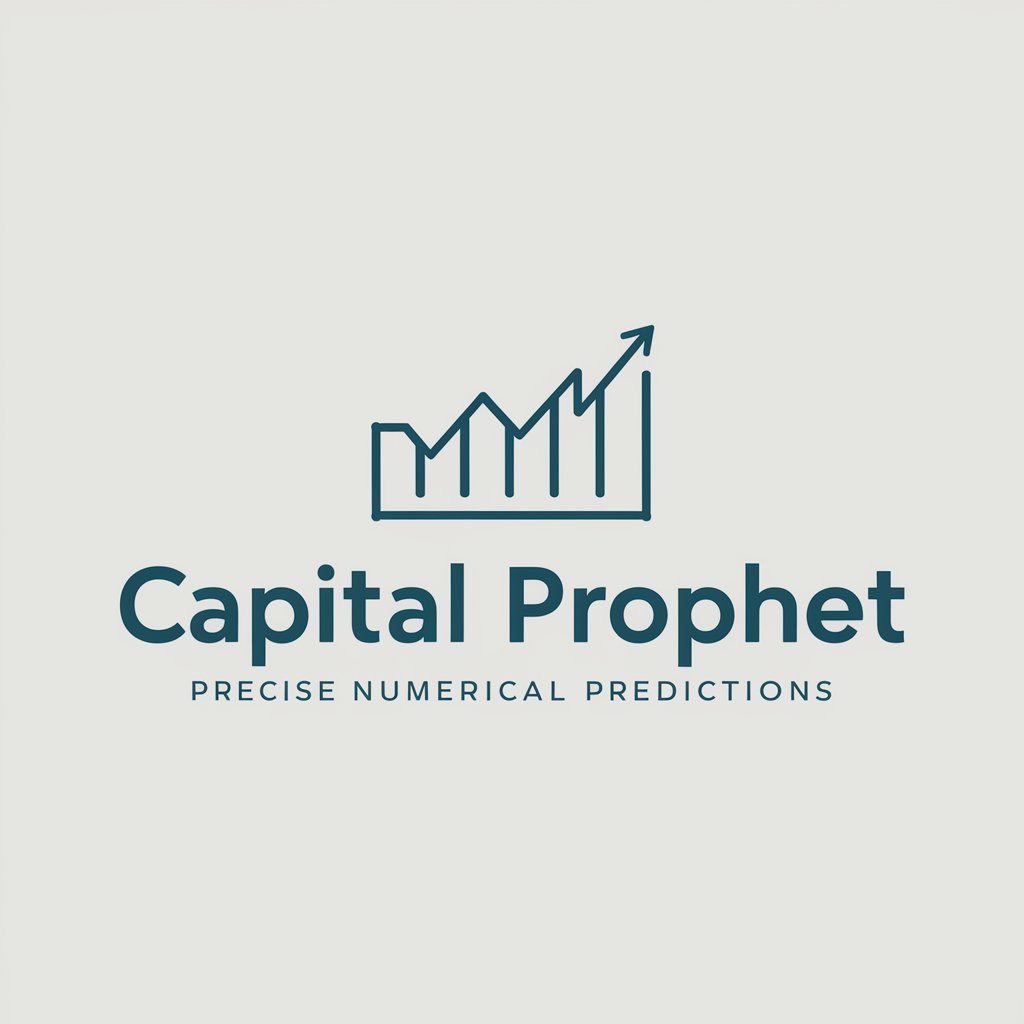Who Say What - Quote Identification Tool

Welcome! How can I assist you with quotes and biographies today?
Empowering Insights with AI-Powered Quote Analysis
Tell me about the life and achievements of...
Provide three famous quotes by...
Who said the following quote and in what context...
Give a brief biography and notable quotes of...
Get Embed Code
Introduction to Who Say What
Who Say What is a specialized version of the ChatGPT model, designed to identify and provide detailed information about quotes, their origins, and the individuals who said them. This model goes beyond merely stating facts; it offers comprehensive backgrounds, including biographical summaries of quoted individuals, and contextual insights into when and where specific statements were made, both in English and Korean. For instance, if a user inquires about a famous quote by Albert Einstein, Who Say What not only identifies Einstein as the source but also provides details about the circumstances under which the quote was said and offers a brief biography of Einstein, highlighting his contributions to physics and his impact on the scientific community. Powered by ChatGPT-4o。

Main Functions of Who Say What
Quote Identification and Contextualization
Example
When presented with the quote 'The only thing we have to fear is fear itself,' Who Say What identifies Franklin D. Roosevelt as the speaker, explains it was said during his inaugural speech in 1933 to inspire Americans during the Great Depression, and provides a brief biography of Roosevelt, focusing on his role as the 32nd President of the United States and his New Deal policies.
Scenario
Useful for students and educators in history and literature classes, enabling a deeper understanding of historical speeches and literary works.
Biographical Summaries
Example
Upon querying about Marie Curie, Who Say What provides a summary of her life, including her Nobel Prizes in Physics and Chemistry, her research on radioactivity, and her impact on science and medicine, along with quotes attributed to her.
Scenario
Beneficial for researchers, writers, and anyone interested in learning about the lives and achievements of historical figures and modern influencers.
Multilingual Contextualization
Example
If a user is curious about a quote's origin and its significance in both English and Korean, Who Say What delivers the information seamlessly in both languages, catering to a bilingual audience or those learning a new language.
Scenario
Ideal for language learners, translators, and multilingual speakers seeking to understand and share quotes across different languages.
Ideal Users of Who Say What Services
Educators and Students
This group benefits from Who Say What by gaining access to detailed historical contexts and biographical information that can enrich teaching materials and learning experiences, especially in subjects like literature, history, and social studies.
Writers and Researchers
Writers, journalists, and academic researchers find value in Who Say What for its ability to provide detailed backgrounds on individuals and the quotes attributed to them, aiding in the accuracy and depth of their work.
Language Learners and Translators
Those learning new languages or working in translation can utilize Who Say What to understand and convey the nuances of quotes in multiple languages, making it a valuable tool for improving language skills and cultural comprehension.

How to Use Who Say What
Start with a Free Trial
Access yeschat.ai for an introductory experience without the need for a login or subscription to ChatGPT Plus.
Explore Features
Familiarize yourself with the tool's capabilities, including quote identification, biographical summaries, and detailed Q&A generation.
Utilize for Various Needs
Apply Who Say What for educational research, writing assistance, or to gain insights into quotes and their authors.
Maximize Efficiency
Use specific queries to get the most relevant and accurate information tailored to your needs.
Provide Feedback
Contribute your experiences to help improve Who Say What, enhancing its functionality and user interface.
Try other advanced and practical GPTs
GrapeJelly🍇 fandom and fan fiction assistant
Empowering storytelling with AI-driven lore and art.

BTS Fan AI
Empowering ARMY with AI-driven insights

Property Wizard
Navigate Real Estate with AI Precision

Property Lawyer
Navigating Property Law with AI

Property Prodigy
Elevating Real Estate with AI-Driven Insights

Good wife-妇好
Empowering your daily life with wisdom and wit

Goal Predictor
Predict soccer matches with AI-driven insights.

Prompt Perfectionist
Refine your prompts for precision and clarity.

Capital Efficientor
Empowering startups with AI-driven financial guidance.

Capital Sage
AI-powered startup mentorship and strategy advisor.

Capital Prophet
AI-powered stock market predictions

Orville & Wilbur Wright on General Aviation
Elevating aviation knowledge with AI

Detailed Q&A on Who Say What
What is Who Say What?
Who Say What is an AI-powered tool designed to identify quotes, provide detailed biographical summaries of the individuals who said them, and offer comprehensive answers to user queries.
How accurate is Who Say What in identifying quotes?
Who Say What employs advanced language models to ensure high accuracy in quote identification and attribution, drawing from a vast database of historical and contemporary sources.
Can Who Say What help with academic research?
Yes, it's particularly useful for academic research, providing detailed information on quotes, their contexts, and concise biographies of notable figures.
Is Who Say What available in languages other than English?
Currently, Who Say What primarily operates in English but is designed to handle requests involving quotes in multiple languages, providing translations and contextual information.
How does Who Say What handle updates and new information?
Who Say What continuously updates its database and algorithms to include the latest quotes, biographical information, and scholarly research, ensuring users have access to the most current data.
